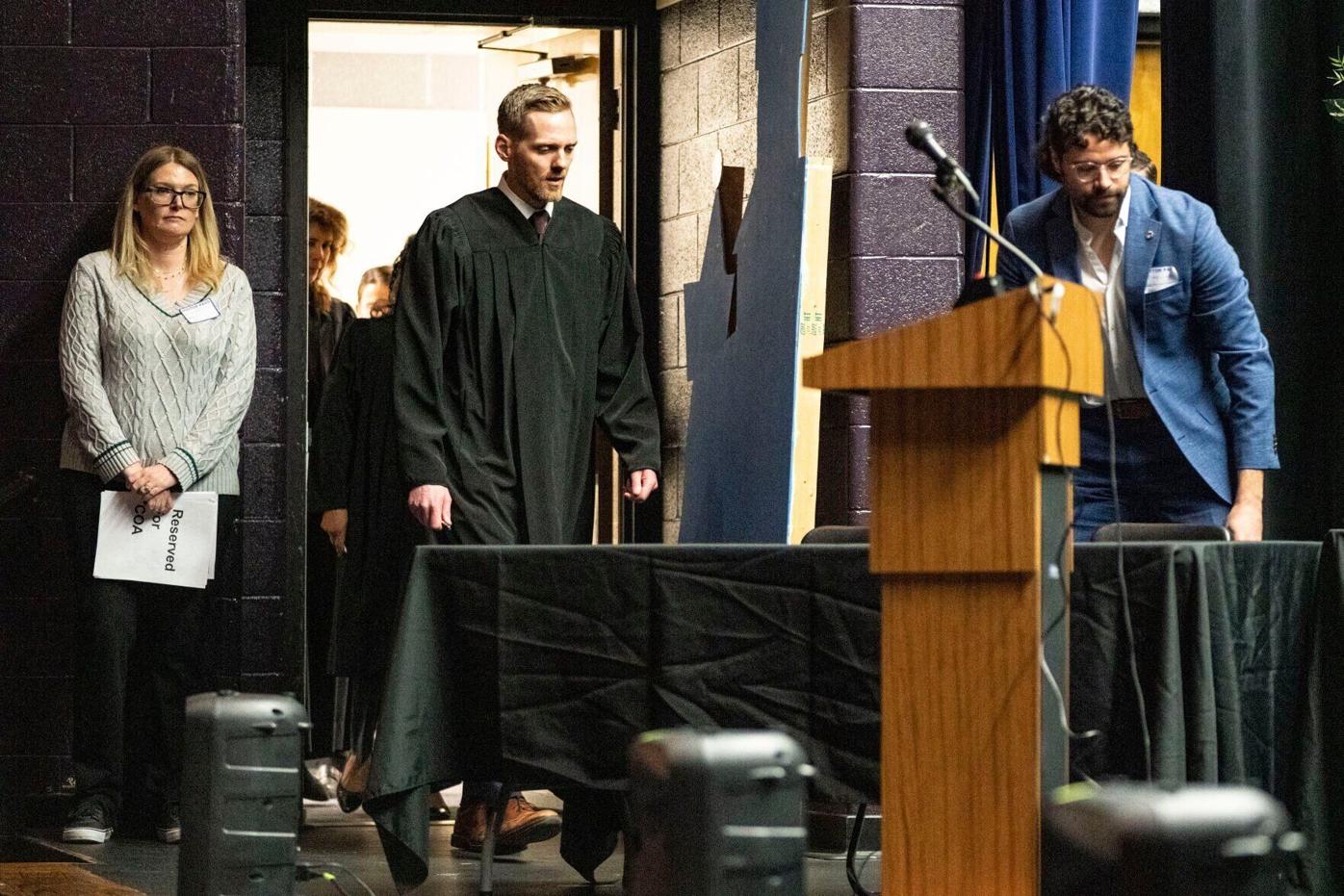Appeals court orders new murder trial for teen after judge blocked self-defense evidence
Colorado’s second-highest court overturned a defendant’s murder conviction last week after concluding an Arapahoe County judge wrongly barred evidence suggesting the man acted in self-defense.
There was no dispute that 18-year-old Joseph Dean McCaughin shot and killed 16-year-old Ryan Robertson in Aurora in May 2019. In the prosecution’s telling, McCaughin was jealous of Robertson, who was dating McCaughin’s ex-girlfriend. McCaughin engaged in abusive and stalking behavior, exchanged insults with Robertson and opened fire in a park near an elementary school.
McCaughin asserted he acted in self-defense. At trial, McCaughin started to testify that the night before the shooting, he received a video on Snapchat, a social media platform that self-deletes messages. In the video, Robertson allegedly said, “When I see you, it’s smoke,” which McCaughin interpreted as a shooting threat.
The prosecution objected that the evidence was hearsay, meaning an out-of-court statement aimed at proving the truth. The defense countered that McCaughin’s recollection of the Snapchat video was meant to illustrate whether he reasonably thought self-defense was necessary.
“I’m not saying that (Robertson) actually intended to act upon these threats,” said the defense attorney. “I’m saying, for Mr. McCaughin, these are the things that are going through his head as the crime happens.”
Then-District Court Judge Elizabeth A. Weishaupl sustained the objection.
“You are offering these hearsay statements — statements that the victim made — for the truth of the matter asserted: that he was going to go get him, that he was, in fact, going to hurt him,” she said. “I will allow you to ask him how he felt. ‘Was he frightened? Was he scared?’ That’s OK. You’re just not going to get into the statements.”
Weishaupl continued to sustain the prosecution’s objections after McCaughin further referenced Robertson’s alleged threat. During closing arguments, the prosecutor told jurors:
• The Snapchat video was “one of the biggest deceits of all”
• “There is zero evidence of what these Snapchats were”
• “There are no actual verbal threats said”
• Robertson “doesn’t once say, ‘I’m gonna come kick your ass.’ (Robertson) doesn’t once say, ‘I’m gonna pull a gun’
Jurors convicted McCaughin of extreme indifference murder and he received a life sentence in prison.
McCaughin made several arguments on appeal, including that jurors should have been allowed to consider the alleged Snapchat threat when assessing whether McCaughin acted reasonably by using deadly force.
A three-judge Court of Appeals panel agreed.
Robertson’s alleged statement on Snapchat was not hearsay, wrote Judge Grant T. Sullivan, because the goal of the testimony was to illustrate its effect on McCaughin.
“Indeed, in self-defense cases, a threatening statement communicated by the person killed or assaulted isn’t hearsay ‘(i)f offered to show the defendant’s reasonable apprehension of danger’,” wrote Sullivan in the July 10 opinion.
Because the prosecution argued McCaughin’s fear was unreasonable, the panel concluded the omitted evidence could have influenced the jury’s view of self-defense.
Weishaupl’s ruling “effectively precluded the jury from hearing any evidence about R.R.’s specific ‘smoke’ comment and why McCaughin interpreted it as a threat with a gun,” Sullivan elaborated. “Without the concrete details of R.R.’s threatening comment, the jury couldn’t fully assess the reasonableness of McCaughin’s belief that R.R. had a gun and posed an imminent danger that justified the use of deadly physical force.”
The panel ordered a new trial.





